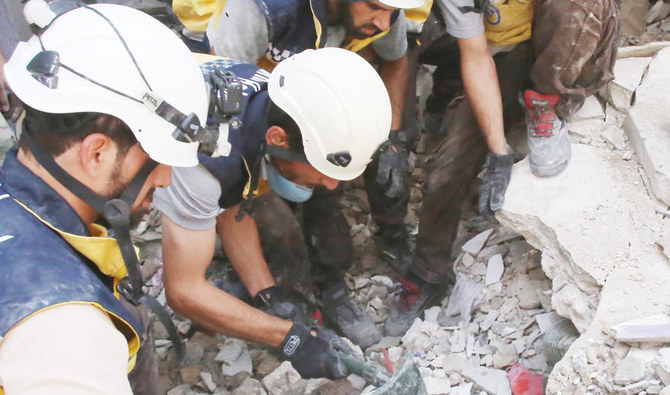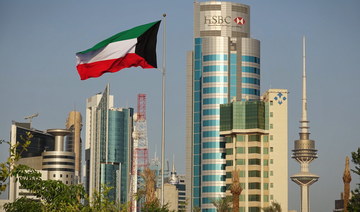IDLIB, BEIRUT: Airstrikes targeted opposition-held cities in northwest Syria on Friday, a war monitor reported, widening bombardment of the last major insurgent enclave to areas that had mostly escaped it.
The strikes killed three people in Idlib and three in Maarat Al-Numan, two of the largest cities in the region, the Britain-based Syrian Observatory for Human Rights reported. Nine more people were killed elsewhere in the enclave, it said.
Another 45 civilians were wounded in the strikes across the opposition-held Idlib region, according to the Syrian Observatory for Human Rights.
Idlib city had been spared strikes by the regime and its Russian ally since they stepped up bombardment of the region more than two months ago.
“It’s the first time that the raids hit the center of Idlib, after being confined until now to its suburbs,” said Observatory Director Rami Abdel Rahman.
Hayat Tahrir Al-Sham (HTS) in January took full administrative control of the Idlib region, home to 3 million people, although other militant groups and opposition factions are also present.
Russian and regime aircraft have ramped up strikes on Idlib since the end of April, killing more than 580 civilians. More than 100 fighters were killed in clashes between regime and opposition-led forces in northwest Syria, the monitor said on Thursday, as violence raged on the edge of an opposition bastion despite a September truce deal.
The UN said it had received reports that the strikes hit medical facilities and health care workers.
FASTFACT
More than 100 fighters and regime troops were killed in clashes in Syria, as violence raged on the edge of an opposition bastion despite a truce deal.
Russian and regime aircraft have since late April ramped up the deadly bombardment of the Idlib region, despite a deal to avert a massive government assault.
Friday’s airstrikes hit residential buildings in one of the city’s largest squares, Sabaa Bahrat, an AFP photographer said. Ambulances were dispatched to the scene to tend to the victims, he added.
Meanwhile in neighboring Hama province, six children were wounded by opposition fire in the regime-held area of Karnaz.
Fierce clashes have raged in the northern sliver of Hama province in recent days, with at least 22 fighters killed on Friday, according to the Observatory.
At least 10 regime troops and a dozen militants and allied opposition fighters were killed in the battle near the village of Hamameyat and its strategic hilltop.
Regime forces retook the area in the north of Hama province overnight into Friday after relentless fighting, according to the Britain-based war monitor.
The recent uptick in violence has forced 330,000 people to flee their homes, according to the UN.






















